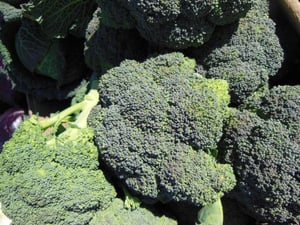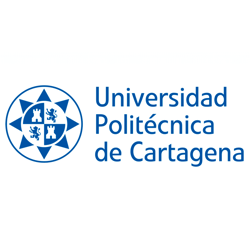Share this
Studying intercropping in horticulture
by Juan Vicente Beneitez Lajas on 11/May/20
A new project in fields4ever
A new partner has been involved in Fields4Ever Initiative, the Universidad Politécnica de Cartagena with the project "Intercropping in horticulture to increase soil productivity and ecosystem services" will take action to recover our soil health.
Project
Samples required and project

The project has been granted 90 samples. They will be used in broccoli and fava bean crops
The aim of this project is to evaluate whether intercropping improves soil productivity, particularly in broccoli and fava beans crops. The project will take place in the Agri-food Experimental Station Tomás Ferro in Spain.
This project will assess different intercropping patterns between a reference horticultural crop (broccoli: Brassica oleracea italica) and a legume (fava bean: Vicia faba) with the aim of deciphering if intercropping provides higher overall productivity by the stimulation of beneficial microorganisms that may enhance nutrient bioavailability and carbon sequestration.
Goals
Our hypothesis is that associating horticultural crops with legumes together with the addition of green manure, tillage reduction, and a decreased fertilizer use (by 30%), may enhance general productivity, soil quality, and fertility by the stimulation of beneficial microorganisms. The main goal is the evaluation of different intercropping patterns between broccoli and fava bean, assessing crop quality and yield, pest incidence, and ecosystem services such as soil quality, biodiversity, fertility, and carbon sequestration.
Methodology
This project will take place during three crop cycles in order to allow potential changes to be detectable. Intercropping will be evaluated with five different treatments: fava bean monoculture, broccoli monoculture, row intercropping 1:1 and 2:1, and mix intercropping. At the end of each cycle, overall yield and crop quality will be recorded and soil samples will be taken to assess nutrient content, soil structure, carbon sequestration, and soil microbial communities. Throughout the experiment, greenhouse gas emissions will be measured and pest incidence and insect biodiversity will be recorded.

Universidad Politécnica de cartagena
Universidad Politécnica de Cartagena, is a university in Cartagena (Spain) focused on schools of technological and business nature.
Head of the project
Eva Lloret Sevilla
Eva is a postdoctoral researcher working in the Department of Agricultural Engineering at Universidad Politécnica de Cartagena. She performed her thesis at CEBAS-CSIC studying different types of stabilization of organic matter and its effects on soil microbial communities and plant health and development. She received her Ph.D. in Soil Sciences from Universidad Politécnica de Cartagena with Outstanding Cum Laude and International Mention. She has conducted research stays at Lawrence Berkeley National Lab and the University of Innsbruck. Her current research focuses on agricultural systems that adopt agroecological practices with the aim to promote soil and plant health and reduce greenhouse gas emissions.
Virginia Sanchez Navarro
Virginia Sánchez Navarro is a postdoctoral researcher at the Universidad Politécnica de Cartagena, within the research group Gestión, Aprovechamiento y Recuperación de Suelos y Aguas (GARSA). Doctorate in Science from the University of Cartagena, Cum laude and international mention, being the sustainable cultivation of grain legumes: soil fertility, plant nutrition, greenhouse gas emissions, and carbon sequestration as the main line of research. He has participated in 4 research projects, two of which are European. She has published 5 scientific articles in journals and She has worked through a doctoral stay at the Institute of Forest Ecology of the BOKU University in Vienna, focused on the study of the effect of pea inoculation with nitrogen-fixing bacteria and arbuscular mycorrhizal fungi.
Raúl Zornoza
Researcher in the Faculty of Agronomy of the Technical University of Cartagena. Specialist in Soil Science. Main research topic: soil quality, sustainable soil management, crop diversification. Main goal: understanding of biogeochemical processes to restore soil functioning in agroecosystems and degraded soils.
Author of 85 publications in SCOPUS, with >1800 cites up to date. H index = 29.
ORCID profile: https://orcid.org/0000-0001-7291-5742
Project Coordinator of H2020 project Diverfarming (www.diverfarming.eu) with 25 partners from 8 different countries and a budget of 10 million €
Secretary-General of the Spanish Society of Soil Science
Share this
- June 2025 (2)
- September 2024 (1)
- August 2024 (1)
- July 2024 (1)
- June 2024 (2)
- May 2024 (2)
- April 2024 (2)
- March 2024 (1)
- February 2024 (1)
- January 2024 (1)
- November 2023 (1)
- October 2023 (1)
- September 2023 (1)
- August 2023 (2)
- July 2023 (2)
- May 2023 (2)
- April 2023 (3)
- March 2023 (3)
- February 2023 (2)
- January 2023 (1)
- November 2022 (1)
- October 2022 (2)
- September 2022 (1)
- August 2022 (3)
- July 2022 (3)
- June 2022 (1)
- May 2022 (5)
- April 2022 (7)
- August 2021 (1)
- July 2021 (1)
- May 2021 (1)
- April 2021 (4)
- November 2020 (3)
- October 2020 (4)
- September 2020 (1)
- August 2020 (3)
- July 2020 (1)
- June 2020 (1)
- May 2020 (2)